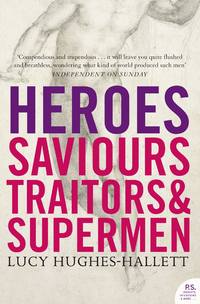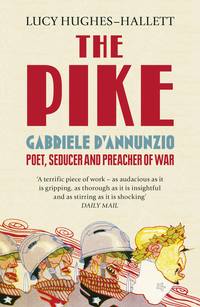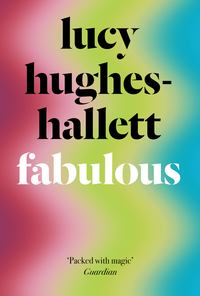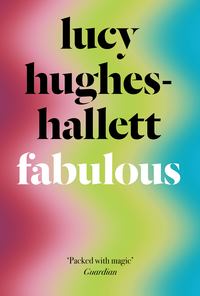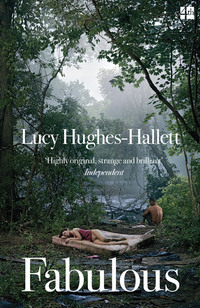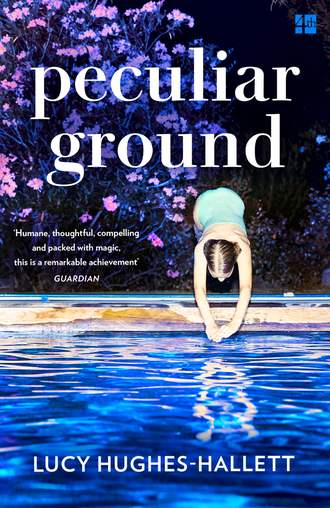
Полная версия
Peculiar Ground
I was flustered and angry. ‘I cannot abandon the two ladies,’ I said.
‘It is better for them, too, that you are clear of this. Run.’
Before I could argue, he and his companion had slipped back into the ‘temple’ and closed the door. Alone, I heard the shouting grow more vehement, and the ugly clatter of falling furniture. A cat flew past me, its ears back, and vanished into the wood. I went after it.
So much for what I saw and underwent. Let Cecily’s letter explain. It is not, though I was momentarily fool enough to imagine it might be, a missive of love.
You are aware that my parents were of the Parliamentary party. My father was not one of those who signed the order for the killing of the late King Charles, but he accepted his share in responsibility for that solemn and awful deed. He himself died soon afterwards.
My Uncle Woldingham, on going abroad for his safety, wisely decided to make of the division of opinion between himself and his sister, not a crack which would ever widen until our family was riven in two, but a strength. He wrote to my mother, asking her to become the steward and, for a while, the mistress of Wychwood. And so it fell out that while my cousin – heir to a great estate – grew up as a wanderer and a mendicant, I lived like a princess, roaming through Wychwood as though it were my own domain.
I was a princess in plain worsted, though, and one who sewed and scrubbed alongside her courtiers. My mother had not estranged herself from her noble family lightly, only in order to return home to live like a lady, careless of lesser folk. She filled Wychwood with those who had been my father’s fellow-revolutionaries, and sharers in his tribulations before their party prevailed.
We were like those who first heard Christ’s calling – or so we pretended. All was shared. Food, clothing, shelter. The women cared for each other’s children. The men laboured side by side. But there were those who cried out loudly against the depravity of the wealthy and the sin of covetousness, who would yet secretly take precious volumes from the library. There were others whose indignation against the ungodly led them to the brutish destruction of things, not theirs, which had been made for God’s glory. Paintings were burnt. Tapestries were hauled down to be used as blankets, and allowed to fray and tatter.
My mother began to fear the people whom she had invited to share her home. I want you to understand, Mr Norris, lest you judge us too harshly, that this was a community founded in love. Its members were sincere. But there was too much envy and too much rancour and there were those who took an obnoxious pleasure in the chastising of the ungodly.
Two women tried to leave the community – they were dragged back and beaten and forced to beg forgiveness on their knees before us all in only their smocks. Now people like us are called dissenters, but our brethren would not tolerate dissent. My mother and I slept in the long gallery, along with all the other women, some of whom were such that my mother in her earlier life would never have sat at table with them, let alone lain down alongside them. This in the name of Christian humility, but the pastor who ordered it took the great chamber for himself. In the night he would call upon such women as he said were in need of a shriving. His chosen penitent would be ushered into his room and we would hear them from behind the two sets of oaken doors – he thundering, she crying out to him and to God for mercy – and the fearsome swishing of his staff.
My mother wrote to my father’s brother, Pastor Rivers. You met him today. He came with his friends and assumed command of the community. The other pastor left early one morning, striding down the gallery over our poor bedding, his cheeks puce above his tight white kerchief, bellowing like a bullock going to the slaughterhouse. I do not know how he was prevailed upon to go. My mother and Uncle Rivers, wishing to remove their flock from the great house which had so corrupted them, established the settlement in the woods, and there our meeting-house was built.
Cecily’s letter goes on to describe a parallel world, one which permeates the one I have inhabited so blindly, as a tincture of juniper dissolves into clear water, transforming its nature unseen. To his Lordship, surveying his domain from his new-fangled sash windows, his park seems a paradise frequented only by those who toil for his pleasure. But it is populous. People cross it on paths that thread through stands of hazel and slip behind dense-growing young ash trees. People tread sunken ways of such ancient use that they traverse the park like trenches, their banks so overgrown with flowering plants that any pedestrian’s head passing there-along would show like a bladder bobbing on a foamy green stream.
These comings and goings, furtive as those of fox or stoat, are the means by which a society maintains itself. Trade routes, the paths along which babies are carried to the grandparents who will tend them while their mothers work, the tracks down which the workers plod outward at dawn, and homeward at evening. All these scarcely visible, unsanctioned thoroughfares cross the park. All will become impassable once the wall rises, with its iron gates, its lodges like guard-houses, its rigid distinction between the privileged space within it, and the inferior world without.
I have spoken to my cousin [writes Cecily], but his misfortunes have marred him. He longs for privacy, for a place in which he can confine himself, and where he can play unrebuked. You will have noticed how childlike he is.
With his grand projects, he has thoughtlessly exposed us to the jealousy of the intolerant. Among the labourers who have come to carry out the works there are those who hate and fear people of our persuasion.
Meg was ill-treated by some of the ignorant who, having no authority, have only fists and violent words as weapons. My cousin can quell them. But those who broke in upon us, as you saw, carried the King’s warrant. Some of our friends have been carted away – to Oxford, we believe. I fear for them.
She sent me no tender glance yesterday. Nor does her letter contain any word that might not have been addressed to a formal acquaintance.
*
Mr Goodyear fell into step beside me as I walked in the park this morning. It is not only his troop of foresters who acknowledge his authority. I have noticed how the generality of my Lord’s people defer to him. I believe that he and Meg Leafield are nearly related. A great estate is like an island, a closed community whose denizens must perforce marry each other, so that it is not uncommon for all to be connected by ties of blood, but these two – an old woman, spry of intellect but creaking of body, and a thriving man who, were he but a gentleman, would be admired as a modern Hercules – have some especial bond.
‘You’d think, wouldn’t you, sir, that being as proud as he is of that coloured pavement, Lord Woldingham would wish it preserved.’ Goodyear had been an onlooker at my Lord’s fête at the house of Bacchus.
‘Most certainly.’
‘So why is he allowing you to drown it?’
I explained that no such thing was intended. The lake-waters, if my calculations prove true, will rise to approximately two feet beneath the level of the Roman villa’s floor. ‘It will be preserved most carefully. It will make a charming picture, when the undergrowth is cleared away from the ruins and the ancient archway is reflected in the water.’
Goodyear nodded. ‘There is another one, you know,’ he said.
‘Another picture in mosaic?’
‘Beneath the chapel.’
‘Chapel?’ Lord Woldingham laughs at me for being as tedious a parrot as Carisbrooke. But one can gain time, in conversation, by repetition.
‘You were there yesterday.’
At Wychwood, there are eyes in every tree.
‘Be so kind as to tell me about it.’
‘When Miss Cecily’s uncle was choosing a spot for his meeting-house, as he called it, he asked me for my opinion.’
Nearly all those who now serve their returned Lord have passed years living here without him. Only gradually will he discover what they know about his land.
‘I took him to that place because the ground is level and easily worked. There’s water. And there’s the pebble-picture. I said to him, “The two lads will bring you luck.”’
He waited. I took my cue, parrot-fashion. ‘The two lads?’
‘That’s the picture, you see. Two boys. Little ones. Lying as it were, head to tail, to make a ring. There’s a story about them.’
I had only to nod for him to proceed.
‘There was once a king’s son, and in the same city there was a wise woman, and the wise woman had a son too. And there came a great rain, and the waters rose until there was no more difference between the land and the sea. And all the animals crowded onto hilltops that stood up out of the water like islands. And the people gathered there too.’
Goodyear had adopted an incantatory style of speech, as storytellers do, but he lapsed back into his normal pitch to deliver a piece of commentary. ‘It’s much like the story of the great flood in Noah’s time, you’ll be thinking, sir?’ I nodded again. He went on.
‘The King saw that there were no fields to till, and no green stuff for the cattle to eat. And he called the wise woman. And he said to her, “How am I to save my people?” She said, “You must take the thing you love most in the world and set it in a boat and send it out onto the water, and the rains will cease.” So the King set his crown on a damask cushion, and placed it in an ivory casket, and put it in a boat, and caused that boat to be launched out onto the current. He stood on the shore, weeping and wringing his hands as the boat went swiftly towards the horizon, and he saw that it was seized by a whirlpool, and sucked down into the belly of the flood. He waited then for the rain to cease, but instead the wind grew wilder, and where the rain had fallen before like water gushing from a drainpipe, it began now to fall like cascades from heaven.
‘The King called for the wise woman and told her what he had done, and she said, “What a man feels for a circle of gold is covetousness. What a man feels for a crown is a lust for power. I spoke of love.”
‘The King had a horse. He had bought the creature from a merchant who came each year from the East with a ship laden with wonderful things. The horse was faster than any other in the country and its coat shone like quicksilver. It knew its master so well, and was so obedient to him, that when the King rode upon it it was as though he had become like the centaur, in which man and beast are as one. That horse, too, the King sent out onto the waters. That horse, too, was swallowed down by the flood. And instead of ceasing, the rain fell so thick it was as though the ocean had mounted up in one great watery mass, to fall again on earth.
‘The King called for the wise woman again. He said, “I have given the crown, which is the token of my magnificence and my power. I have given the horse, that performed my will as readily as my hand does, and that could outrun the wind, and that would take sugar from my palm with lips that were as soft as velvet and as feeling as a musician’s fingertips.” She said, “What kind of a father are you?” And he understood her, and he fell to his knees on the ground, and his gorgeous robes were sodden with the wetness that was all around, and he said, “No. Not for my kingdom. Not for all my people. Not my son.” And the wise woman said, “You must.” He said, “What you ask of me is cruel. You too have a son. Would you do so?” and she said, “I would and I will.”
‘So the young prince came out of the palace and the wise woman’s son was waiting for him by the shore. The two boys had been born on the same day, and they were as like as your left foot is to your right foot. They were both dressed in smocks of sky-blue, and they sat side by side in the boat, and none knew any more which was the prince and which was the cunning woman’s child. And the boat was launched upon the flood.
‘The whirlpool seized it, as it had seized the others, and then the two boys held out their arms to each other, and they tilted their heads back as dancers do when they dance in a ring. The boat went from under their feet and was lost to them in the depths of the ocean. The spinning water whirled them about, but, as it turned them, so they turned within it, and their circled arms were as a wheel laid flat upon the water, and that wheel turned faster and ever faster, till those whirling boys rose into the air, and the speed of their spinning was such that it carried them on upwards until all that could be seen of them was a circlet of blueness against the terrible black of the storm clouds. And the rain stopped absolutely, and the clouds were driven from the sky. The King and the wise woman stood together watching, with tears clouding their sight, but had they been as sharp-eyed as killer birds they would have seen their children no more.’
Goodyear had adopted the pose I have seen storytellers assume on fairgrounds, legs braced apart for stability, hands on hips, his face upturned as though he sought words in the air. I was greatly impressed by his tale. I was curious to know its origin. The boys on the Roman pavement, I felt certain, must be the Gemini of the zodiac, for these Roman fragments often treat astrological themes. I feared, though, to offend my companion if I made a parade of my scholarship.
He passed both hands over his head and scratched it. ‘That’s the story I have heard,’ he said.
‘I am much obliged to you for it. Is it . . .’ I hesitated. ‘Is it one you heard from your parents?’
My instinct had been correct. He acted as though enquiry was improper. ‘It is from this place,’ he said, and looked at me teasingly.
We were in the far part of the park, above the ruined villa. Beneath us we could see Lord Woldingham and his wife strolling with their attendants along the valley floor. He offered her his arm and they walked together, their companions falling back, to the boggy place where their child had died. There they stood, apparently without speaking, for a considerable time.
*
When I’d finished writing in my journal last night I fell asleep as though dropping through a trap.
A commotion awoke me before it was light. I shoved aside a pillow so that it covered over my papers. Mr Rose, who is lodged near me, was already in the open doorway. ‘Come, Norris,’ he said.
I followed him along the corridor that leads into the oldest part of the house. He ushered me into a room holding a narrow bed and a wooden bucket. A bunch of dusty lavender, curiously bound with faded blue ribbon, was suspended from a hook in the window embrasure. The sheets were smoothed.
‘This is where Meg Leafield was quartered,’ he said.
Seeing me still baffled, he went on.
‘She is gone. I heard a scuffling past my door but when I looked out there was no one there. I think, Mr Norris, that we should follow her.’
A mouthful of water, boots, coat, muffler. I was ready. A resentful lad brought out our horses. Rose set off at a canter. At the entrance to the holly grove we dismounted and left the animals to graze. In the midst of the wood we left the path and trod softly to a little hummock. Lying flat on its apex, we could peer through the topmost branches of the trees before us, and see the clearing and the meeting-house spread beneath. The sun rising behind us set a blush in the sky and flooded the scene with long shadows and caressing light.
A great concourse of women. At its centre stood Meg Leafield. And so, the only male in sight, did the boy who threw a ball at me. Meg seemed to be pulling at his clothes.
‘You’ve been here,’ said Rose.
‘I have.’
‘You recognise that boy.’
‘You know that I have seen him before. He knocked me down.’
‘But do you understand who he is?’
I stared, mute.
‘He’s Cecily’s boy,’ said Rose. ‘Edward.’
The boy Edward’s shirt was off. The women were handing garments to Meg. He stood quiescent in his breeches. Meg helped him gently into new clothes far finer than those he had shed.
A lawn shirt. Stockings and high boots. An embroidered waistcoat and a sky-blue coat. I saw what was being done. My hands were shaking.
‘His cousin, then,’ I said. ‘They seem to be of an age.’
‘We must stop this,’ said Rose.
He scrambled to his feet and ran aslant down the slope, as clumsy as a charging boar, trampling small branches and sending stones clattering. I followed.
The other women looked round startled but Meg was unperturbed. Rose leapt the last few feet, and landed amongst them, impelled forward like a falling rock by the speed of his own going. He is a stocky man, broad-beamed and short-legged. I was almost as nonplussed by his urgency now as the women were. I slipped and scrambled after him with dread shadowing my mind and chilling my limbs.
My circuitous return from this spot two days previously had allowed me to calculate its position in relation to the great house, and to the course of the stream. Not far from where we stood is a pond, much obscured by bulrushes, but nevertheless tolerably deep. This pond is the embryo from which one of my lakes will grow. From the height where we had lain in hiding I had seen it glint.
Rose had Meg by the shoulders and was shaking her. I would have restrained him, but the women were quicker. They haled him off her and wrapped themselves around him, disabling him as a great sea-monster might disable a ship by embracing it with its tentacles. I hung back. Meg stepped up to me and to my astonishment took me gently by the hand.
‘Your friend misunderstands us. We intend no harm to this boy, as we have done no harm to the other.’
‘I am at a loss,’ I said. ‘I am as puzzled by your proceedings as I am ignorant of what interpretation Mr Rose would put upon them.’
‘He thinks we are witches,’ she said, the last word uttered with derision.
Rose, still under restraint, was shaking his head vigorously.
‘I sincerely doubt it,’ I said. ‘Mr Rose is a scientist. He loves lucidity, and measures the world with set-square and rule. He is not one to babble of sorcery.’
‘Perhaps not, but he thinks that we are.’
Someone stepped out of the gaggle of onlookers and took my other arm. It was Cecily. ‘I will subdue him,’ she said to Meg.
And so she did. With her hand in the crook of my elbow I quieted. A man in love is as spiritless as a lapdog. She took me to a heap of logs, and sat upon it beside me. We watched in silence as Meg finished dressing the boy.
‘Say what you will,’ I said to Cecily sotto voce, ‘this is a kind of conjuring.’
The boy, Edward, was now the living copy of his dead cousin. He gazed steadily at Cecily, who inclined her head as though in approbation.
‘Who is his father?’ I asked. It was unmannerly. All this mystification made me tart.
‘In the community in which I was raised all children were loved by all. All the men were their fathers.’ Her voice was low and even.
‘That is not an answer.’
‘I agree with you.’
‘Then who?’
‘What is your motive for enquiring?’
‘I aspire to be your husband. I would know who you are.’
Her gaze was still fixed upon the boy.
‘Lest I shame you?’
I made no reply, but waited.
‘Mr Norris, I will not be questioned.’ Cecily stood and took young Edward by the hand. They went together in the direction of the pond. Meg led the other women after, Rose captive among them. I stayed, ignored.
A gang of masons was coming along the track from the quarry. Great blocks of stone, granular like gigantic sugar lumps, rocked on makeshift carts – tree-trunks laid over the axles of solid wooden wheels. Men stood on or by them, watching the ropes, ready to holler out if one of these man-made boulders showed a tendency to shift. The six horses were as heavy-built as bulldogs and twelve times as tall and long. The strength and sweat being expended on giving Lord Woldingham his privacy would serve to construct a sizeable town.
Saplings of hazel and elder screened the one group from the other. Only from my standpoint was it possible to see men and women both. A man rocking atop a boulder, like a seaman balancing on a spar, gave a shout. The women startled and froze, only Cecily and young Edward walking on oblivious.
The men moved into action with awful slowness. The horses were halted; wooden chocks were wedged behind the wheels to stop the cart and its load rolling backwards. The men, whose legs and arms were already sheathed in leather (quarrying is dangerous work), shrugged their jerkins on, despite the warmth of the day. Deliberately, they picked up clubs or knotted ropes. Cecily and the boy had crossed the track now, and were silhouetted against the green water.
The men barged through the undergrowth. The group of women tightened. I saw Rose shake himself free and step forward, a silly little tub of a man. These men were his team. He raised both arms, as though surrendering to them, or inviting an embrace. They divided, and passed him by, as stream-water passes by a saturated log. As they approached the women they were wagging the tongues in their mouths in a song that was no song. Dig a dig a dig a dig a dig a dig. Guttural. The human voice used not to communicate, but to terrorise.
I knew that to intervene would be useless, but I ran forward yelling with all the breath in me and waving my arms as though to fight off a swarm of wasps. I had not breakfasted. Tiny coloured sparks seemed to obscure my vision. As the clubs began to pound and the ropes to whack, I saw Cecily and Edward, his coat as brilliant as speedwells in the grass, step from the verge into the pond. They neither paused nor looked back. The water was still. Clear of the shadowy wood, their figures were brightly illuminated. I could see them plain, from the paired chestnut heads to the wooden heels of their sturdy shoes. Beneath, their reflections hung from them, suspended upside down, foot-sole from foot-sole. They stepped on the surface of the water as easily as though it were clear green glass.
Friday
All the smells in the changing hut were peculiar. Indoor smells were warm – floor-wax, ironed sheets, toast. Outdoor ones were fresh and wet. These fell into neither category. There was the urinous whiff from the rush matting. The tang of creosote. Rubbery smells from bathing caps and the thick soles of sandals. The dusty breath of the high yew hedges, the aura of the overhanging pine trees, which smelt nothing like her father’s pine shaving soap and whose needles covered the ground behind the hut with a carpet which was at once prickly, if an upturned needle spiked your foot, and as silky as vegetable fur.
Nell and her brother came almost every morning. It had to be mornings because by the time they’d digested their lunch the tall trees’ shade had made the unheated pool a rectangle of green-black chill. The pool wasn’t designed for children. There was a coir-sleeved diving board, springy as a catapult, but there was no shallow end. They had to climb in down the metal ladder, goose-bumps rising as the water reached the ruching of Nell’s bathing dress, or Dickie’s matted wool trunks. A clumsy turn and a plop backwards into the inner tubes of car tyres that served them as coracles. Her mother swam up-down, up-down, up-down, but Nell and Dickie just drifted, jack-knifed as though in hammocks, their lips gradually turning blue as their noses burnt pink.
It was quite different when other grown-ups came. Her mother was no distraction. You only noticed your mother when she went away. But when Mrs Rossiter came and sat down beside Mummy on another of the wicker chairs, and got Mr Underhill to bring a tray, and started being amusing (all the grown-ups agreed Mrs Rossiter was amusing), the drift of Nell’s thoughts between the blank sky and the shivering water was obstructed. It was Mrs Rossiter’s pool. It was so kind of her to let them use it. But Nell was beginning to understand, from the way her mother’s voice changed, and from the shoulders-back propriety with which she sat to drink her lemon barley water, that people being kind could make you feel worse rather than better.




